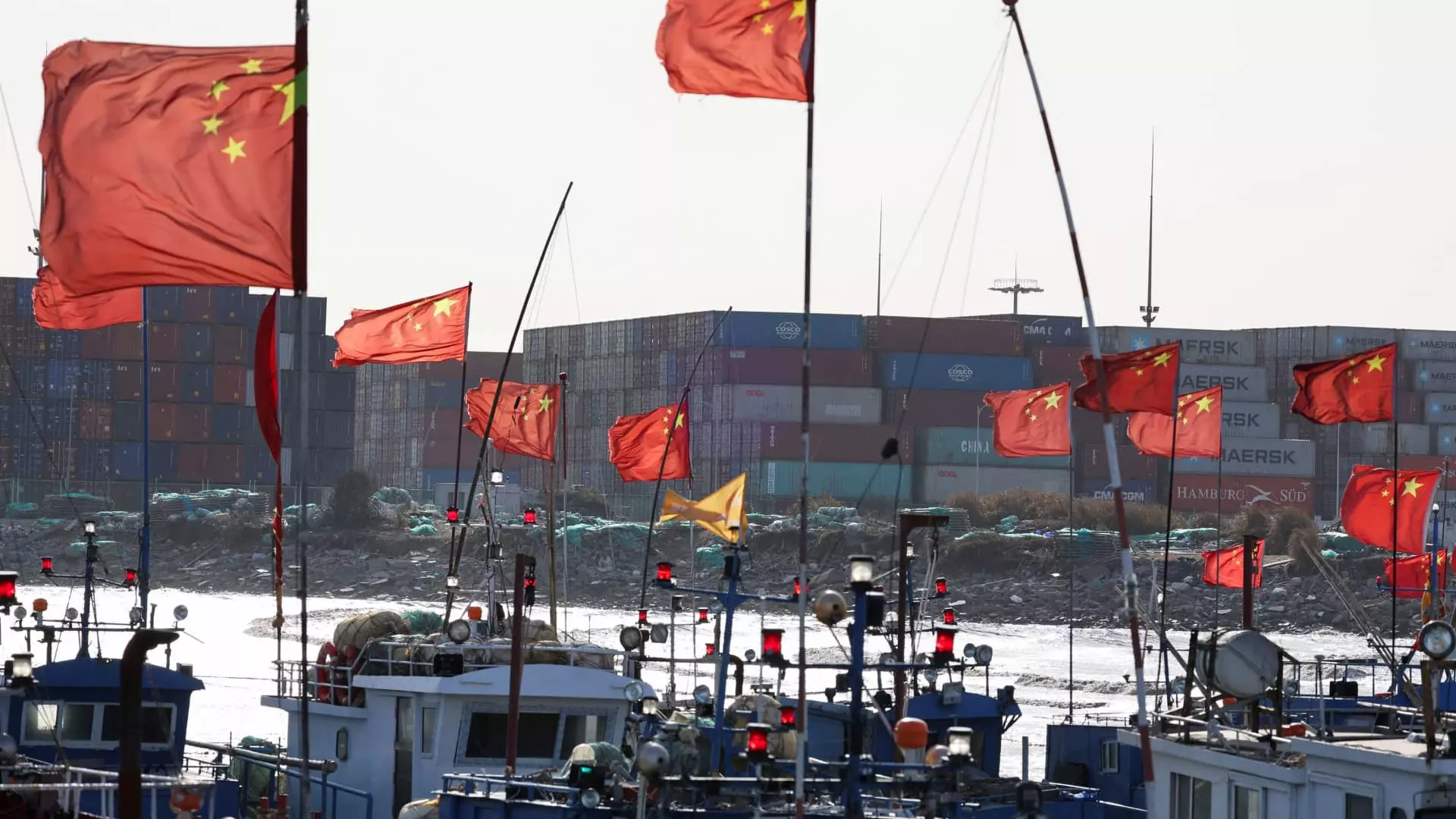In a world where diplomacy often rides the fine line between civility and hostility, China’s response to accusations leveled by the Group of Seven (G-7) stands as a testament to its deteriorating international image. The G-7’s assertion—that China’s actions in maritime zones are not merely provocative but also perilous—has sparked a volatile confrontation with a nation that prides itself on its global ascension. Instead of engaging in a substantive dialogue, China swung back with a declaration that questioned the G-7 members’ integrity, dubbing them as “arrogant” and filled with “malicious intentions.” This bluster is no mere artifact of diplomatic speak; it reveals a deep-seated reluctance on China’s part to confront the realities of its geopolitical maneuvers.
The Stakes in the South China Sea
At the heart of the maritime disputes, particularly in the South China Sea, is a staggering figure: approximately $5 trillion in global trade. This vital waterway is being increasingly encroached upon by China, which claims near-total sovereignty despite contrary rulings from international courts. While China’s expansive claims are anchored in historical narratives, they disregard the pressing realities faced by neighboring nations like the Philippines, who have fought tooth and nail for their territorial integrity. The G-7’s condemnation of China’s land reclamation and military posturing indicates a turning tide; it highlights a growing international consensus against unilateral claims that destabilize the larger geopolitical fabric.
The Taiwan Strait: A Flashpoint for Tensions
The Taiwan Strait serves as a flashpoint in the East Asian geopolitical landscape. By maintaining its uncompromising stance on Taiwan—an island it considers a renegade province—China’s leadership risks igniting a larger confrontation with the West. The recent military provocations, including live-fire exercises in the vicinity of Australia and New Zealand, underscore an alarming trend: a readiness to employ force to emphasize its claims. The G-7’s protective stance over Taiwan should not merely be viewed as a defense of one island; it encapsulates broader concerns about democratic sovereignty in the shadow of autocratic ambition.
A World Divided: Responses to China’s Military Expansion
China’s maritime strategy is evidently escalating, and it raises crucial questions about the balance of power in the Asia-Pacific region. The G-7 members have signaled a unified front to counter coercive actions that threaten freedom of navigation. It’s an implicit recognition that the naval expansion, illustrated by China’s burgeoning fleet—boasting the largest navy in the world with a fourth aircraft carrier under construction—requires a response. However, the question remains as to how far the G-7 will go to support allies such as Taiwan and the Philippines. This divide could foster deeper rifts, necessitating that democracies not only arm themselves but also forge more robust alliances in defense of international norms.
The International Community’s Responsibility
The geopolitical chess game being played between China and the G-7 extends beyond mere economic interests; it challenges the very framework of international cooperation. As China continues to dismiss international legal rulings, the world must reckon with its own complicity. Are the G-7 and other democratic nations willing to take concrete actions, or will their statements remain empty rhetoric, failing to deter further aggression? The stakes are high, not merely for East Asian nations but for global trade, ecological integrity, and, ultimately, for the preservation of democratic governance.
China’s reactions to international criticism are steeped in both defensive bravado and an underlying vulnerability. As the G-7 issues strong denouncements, it indicates a growing recognition of the long-term threats posed by unchecked aggression. It is time for the international community to acknowledge that this isn’t merely about maritime claims but about maintaining a stable world order in the face of rising authoritarianism. China’s military and economic ambitions manifest not as isolated incidents but as part of a broader agenda—one that demands a serious, coordinated response from the global community.


Leave a Reply